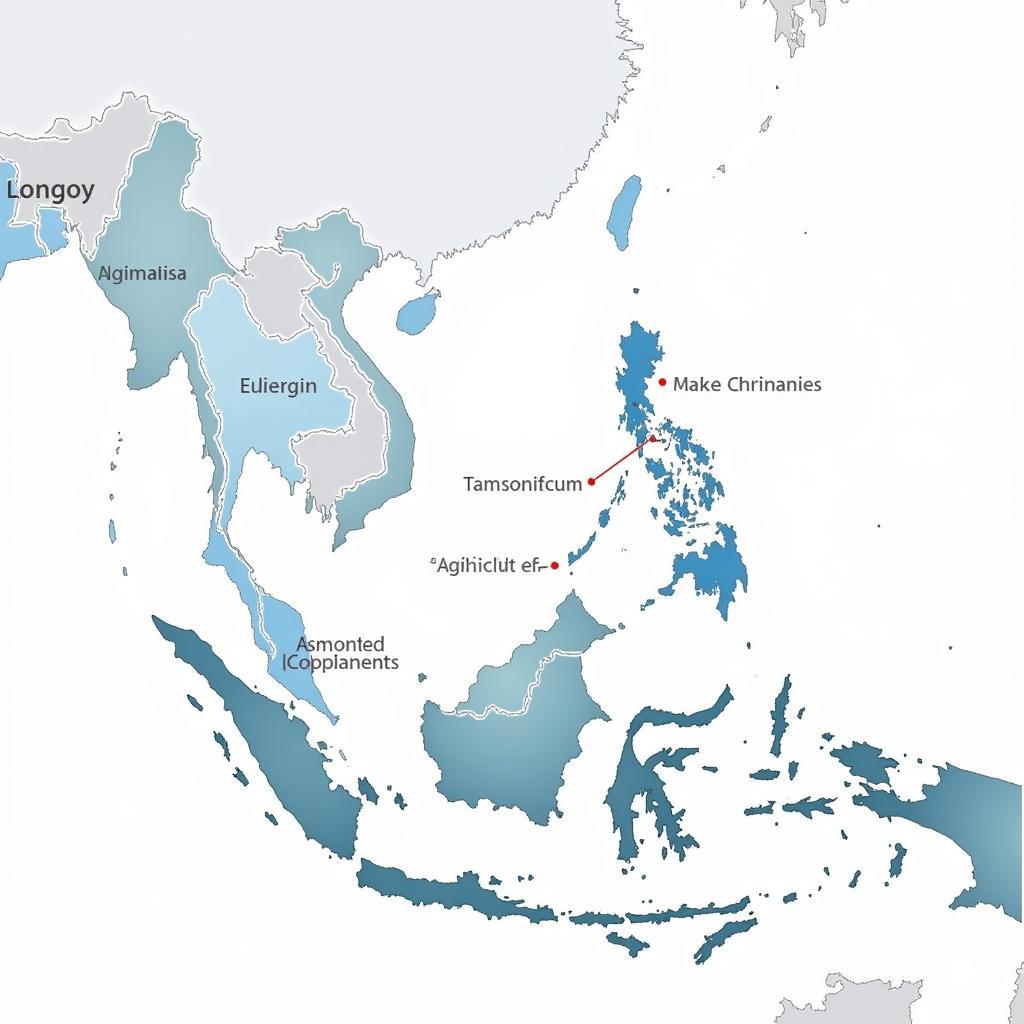The year 1967 marked a pivotal moment in Southeast Asian history. It was the year ASEAN, the Association of Southeast Asian Nations, was founded. This event, driven by a shared vision for peace and prosperity, laid the groundwork for regional cooperation and integration that continues to shape the region today.
The Bangkok Declaration: A Cornerstone of Collaboration
On August 8th, 1967, five Southeast Asian nations – Indonesia, Malaysia, the Philippines, Singapore, and Thailand – came together in Bangkok, Thailand, to sign the ASEAN Declaration, often referred to as the Bangkok Declaration. This document outlined the founding principles of ASEAN, emphasizing regional peace and stability, economic growth, social progress, and cultural development.
The ASEAN Way: Consensus and Consultation
Central to ASEAN’s identity is the “ASEAN Way,” a unique approach to regional cooperation based on consensus, consultation, and non-interference in internal affairs. This approach recognizes the diversity of the region and emphasizes dialogue and cooperation in addressing common challenges.
Economic Cooperation: From ASEAN 1967 to the ASEAN Economic Community
One of ASEAN’s core objectives from its inception was to accelerate economic growth and development in the region. Over the years, ASEAN has implemented various initiatives to promote economic integration, culminating in the establishment of the ASEAN Economic Community (AEC) in 2015. The AEC aims to create a single market and production base, facilitating the free flow of goods, services, investment, and skilled labor within the region.
Expanding Horizons: ASEAN’s Growth and Influence
From its original five members, ASEAN has expanded to include Brunei Darussalam, Vietnam, Laos, Myanmar, and Cambodia. This expansion reflects the growing significance of ASEAN as a platform for regional dialogue and cooperation.
ASEAN 1967: A Legacy of Peace and Progress
The legacy of Asean 1967 is profound. What began as a vision for regional stability has evolved into a dynamic and influential regional organization. ASEAN has played a critical role in maintaining peace and security in Southeast Asia, fostering economic growth, and promoting social and cultural development. As ASEAN continues to navigate the complexities of the 21st century, the principles of the Bangkok Declaration remain a guiding force, reminding us of the enduring power of cooperation and unity.
FAQs about ASEAN 1967
-
Why was ASEAN formed in 1967?
ASEAN was formed in response to the geopolitical realities of the time, particularly the Cold War and the threat of communism in Southeast Asia. The founding fathers envisioned a regional organization that could promote peace, stability, and economic development.
-
What were the main goals of the Bangkok Declaration?
The Bangkok Declaration outlined four main goals for ASEAN: to accelerate economic growth, social progress, and cultural development; to promote regional peace and stability; to collaborate on matters of common interest; and to cooperate with other international organizations.
-
How has ASEAN changed since 1967?
ASEAN has grown significantly since 1967, expanding from five to ten member states and evolving into a more integrated regional organization with a wider range of activities and initiatives.
-
What are some of ASEAN’s most notable achievements?
ASEAN’s achievements include maintaining peace and stability in Southeast Asia, promoting economic integration through the ASEAN Economic Community, and fostering dialogue and cooperation on issues such as transnational crime, disaster management, and climate change.
-
What challenges does ASEAN face today?
ASEAN continues to face challenges such as territorial disputes in the South China Sea, economic disparities among member states, and the need to adapt to a rapidly changing global landscape.
For further information about ASEAN’s history, evolution, and significance, please explore our related articles:
Should you require any assistance, please contact us at Phone Number: 0369020373, Email: [email protected], or visit our address at Thon Ngoc Lien, Hiep Hoa, Bac Giang, Vietnam. Our customer service team is available 24/7 to assist you.
